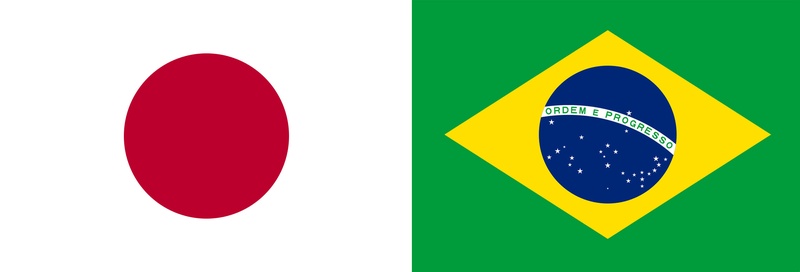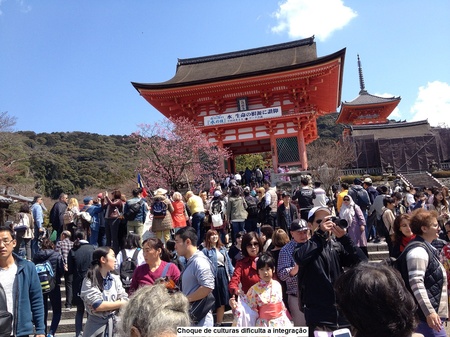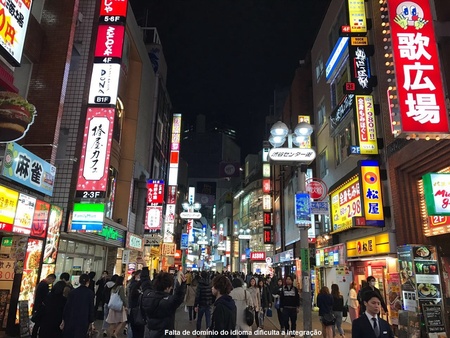As a Nisei, I am proud of my origins and I highly value the principles and values I received from my grandparents and my parents, who, despite their simplicity and the painful and humble life they had, transmitted to us valuable concepts about honesty, dedication, discipline. And, admiration for Japanese culture. Consequently, any news about disagreements, dissatisfaction and conflicts involving the Japanese-Brazilian population in Japan causes me discomfort.
With the advent of the “dekasseguis” phenomenon that began more or less 30 years ago, I have always been concerned about the problem of integrating this Japanese-Brazilian community “in transit” within Japanese society, which is known to be rigid, formal and has little flexibility. There are countless examples of prejudiced treatment and even discrimination suffered by Brazilians, despite their Japanese phenotype, surname and consanguinity. For all intents and purposes, in Japan, “Nikkei” are considered Brazilians and not Japanese. These conflicts occurred very frequently in factories, especially in the first years of Brazilian migration, a period in which thousands of “Nikkei” sought the Country of the Rising Sun as a lifeline, a new Eldorado. Unaccustomed to the hard and heavy, strictly operational services to which they were subjected, added to the difficulty in communicating due to not being able to speak the Japanese language and aggravated by the harsh, cold and uncourteous treatment of the native managers, the Brazilians almost collapsed, only overcome by pride and extreme financial need, which led them there. There has been a noticeable improvement in this “status quo” in recent years, due to the awareness of directors and managers, the interference of the authorities and the repercussion of the issue in the media in general.
Another major concern has always been the education of Brazilian children in Japan, some who were born in the country itself, children whose parents were filled with great doubt, worried about offering a better education for their children. What would be better: putting them in a Brazilian school or a Japanese school? It is known that Brazilian schools have deficiencies in their structure and are more expensive and Japanese schools have a tougher school schedule, they are rigorous, but it is the gateway to a better future, by preparing the child within the principles, rules and customs valued by Japanese society, in addition to enabling fluency in the local language.
However, and regrettably, it is known that cases of “ijime/bullying” still occur in some Japanese schools, where the disciplinary regime tends to be quite strict. Mistreatment occurs by teachers and staff and, mainly, by colleagues themselves who, in a prejudiced way against the “nikkei” student, isolate or ridicule them. Even though they were born in Japan, Brazilians are treated as “foreigners”, regardless of whether they master the Japanese language and adapt to Japanese culture and society.
The cultural shock also reaches the level of Brazilian parents who, when called by the school management to find out about possible incidents with their child at school, are already faced with difficulties in communicating to find out what happened due to lack of fluency in the language. Japanese, and also due to the prejudiced, arrogant and lack of good will that characterize Japanese parents, highlighting the difference in culture. This stance generates conflicts of adaptation and identity, due to non-acceptance on the part of the natives.
From all this complicated scenario, it can be deduced that the great challenge for the current and next generations of children of Brazilian immigrants is to seek, through a university diploma or even a technical course, the safest path to personal affirmation, social ascension and success. Fortunately, we have examples of countless young people who have already managed to achieve this goal and today, in addition to being perfectly integrated into society, they are very well placed professionally.
“He who overcomes himself, overcomes the world!”
—Dr. Luciane Patrícia Yano-Psychologist
note:
1. " CPI debates problems of Brazilians living in Japan " - Senado Noticias , February 12, 2005.
© 2017 Katsuo Higuchi








